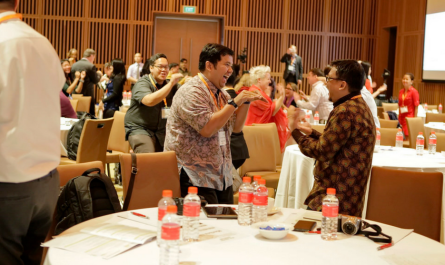Slow and Expensive or Deep and Human – Stereotypes About Qualitative Research
Researchers are well aware of the concepts of bias and stereotypes. But how do thought leaders in the qualitative research space see stereotypes facing their own discipline? We have asked speakers at the upcoming Qual360 Europe 2025 conference for the stereotypes relating to qualitative research that they would like to enforce and to overcome.
Essential for uncovering the “Why” – deeper insights
Nearly all experts mention that qualitative research is essential for uncovering the “why” behind customer behaviours. For Capital.com’s Director of Research, Serenella Bardeggia, qualitative research is about driving deep into the emotions and motivations that drive decisions. The deeper, richer qualitative insights that allow exploration into consumers’ motivations cannot be captured by quantitative data. Qual is thus essential for understanding the context behind consumer behaviours, helping brands connect authentically with their audience. Omar Calls, Senior UX Researcher at Booking says that “we should embrace the idea that qualitative research uncovers deep, human truths. It’s about finding stories, emotions, and real connections behind data points. That’s where the magic happens.”
Qualitative research in times of Big Data and AI
Laurens Van der Hoeven, Insights Manager at Philips, emphasizes that, despite of AI and Big Data being able to provide a lot of information quickly, these cannot fully capture the human element that can be gathered from direct conversations. In addition, Pepsico’s Rachel Popoola also focusses on the human side in research. For her, qualitative research “helps insights experts not to be data robots with quant but storytellers with the human context behind the quant.”
Qualitative research strengthens other methodologies
Dhisana Devi, Group Lead Insights & Strategy at Nestle takes a more integrative view, highlighting that when leveraging qual in tandem with other methodologies, it will almost always enhance the learnings. “Don’t be too quick to dismiss qual when quant seems like the clear-cut solution” she warns.
Slow, soft and expensive – combatting negative stereotypes
Qualitative research is time-consuming, costly and doesn’t deliver hard facts. These are some of the most common stereotypes surrounding it. Many of these are echoed by our expert speakers – but they also share suggestions on how to overcome them.

Serenella Bardeggia contests the aforementioned stereotypes, countering the idea that qualitative research lacks rigor or is purely anecdotal. In reality, she says, qualitative research employs systematic methodologies that provide robust insights. Omar Calls takes a similar view. When done thoughtfully, qualitative research is a methodical, detailed process that leads to insights just as valid and valuable as any quantitative data. Calls says “It’s not about choosing one over the other—it’s about combining both to drive real change and understanding.”
The key stereotype to overcome is the perception of qualitative studies being slow, expensive and difficult to scale says Pepsico’s Rachel Popoola. She sees new and advanced technologies as key enabler to overcome these limitations but also warns that any new technology has to be applied appropriately. Laurens Van der Hoeven also thinks that technology, especially AI, can help to overcome the “slow and outdated” stigma attached to qualitative research. “With AI, we can now analyse qualitative data faster while keeping its depth. Technology helps us work more efficiently without losing the valuable human element that makes qualitative research so important.” he says.

Marta Tkaczyk who leads the market research and insights team at Lotte Wedel counters the argument that traditional FGI’s are time-consuming and do not provide global answers. For Tkaczyk, there are many possibilities to diversify them, such as using online tools during interviews or asking pre-tasks before the meeting. The pandemic has transformed the face of qualitative interviews, as they can now be conducted online with people from different cities, while maintaining cost-effectiveness. New research formats, such as online communities, can also be used, which is particularly useful in research with young people, but also mitigates the group influence effect in the case of more abstract or sensitive topics.
What stereotypes do you see towards qualitative research – and how can you respond to them? Share your thoughts in the comments – or join the discussion live at Qual360 Europe 2025 coming January in Berlin! Grab your tickets at https://eu.qual360.com/ . Keen to join the qualitative community in the US? Then head to Washington D.C on March 12&13 for the North America edition of Qual360!













